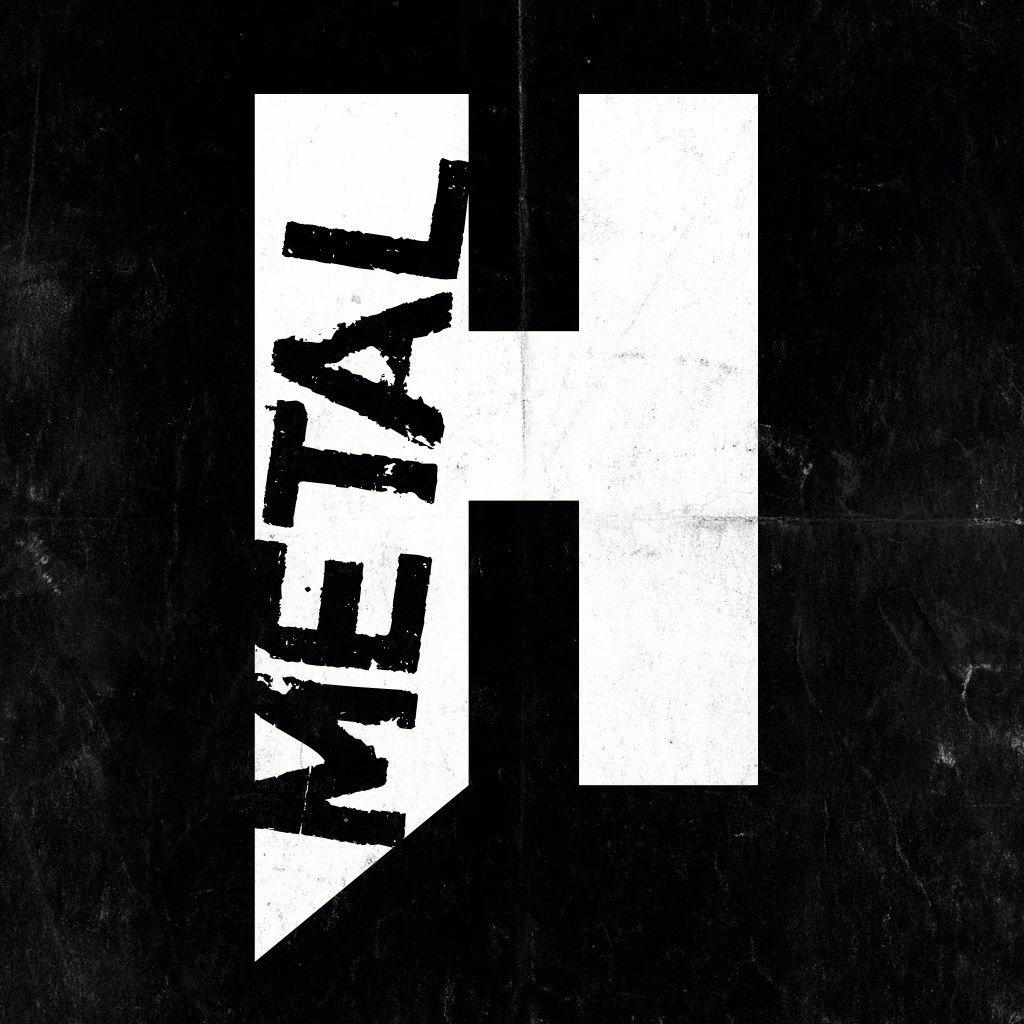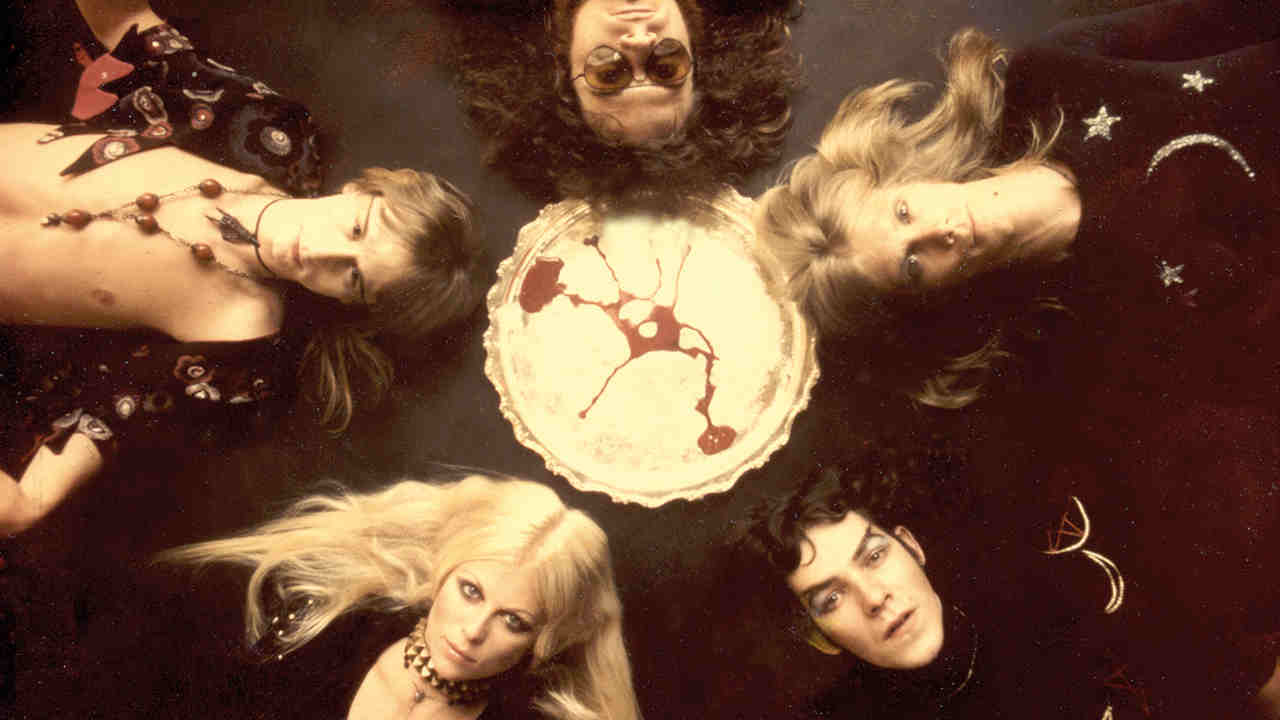The 50 best metal albums of the 2010s
We asked, you voted – here are the 50 best metal albums of the last 10 years
Select the newsletters you’d like to receive. Then, add your email to sign up.
You are now subscribed
Your newsletter sign-up was successful
Want to add more newsletters?

Every Friday
Louder
Louder’s weekly newsletter is jam-packed with the team’s personal highlights from the last seven days, including features, breaking news, reviews and tons of juicy exclusives from the world of alternative music.

Every Friday
Classic Rock
The Classic Rock newsletter is an essential read for the discerning rock fan. Every week we bring you the news, reviews and the very best features and interviews from our extensive archive. Written by rock fans for rock fans.

Every Friday
Metal Hammer
For the last four decades Metal Hammer has been the world’s greatest metal magazine. Created by metalheads for metalheads, ‘Hammer takes you behind the scenes, closer to the action, and nearer to the bands that you love the most.

Every Friday
Prog
The Prog newsletter brings you the very best of Prog Magazine and our website, every Friday. We'll deliver you the very latest news from the Prog universe, informative features and archive material from Prog’s impressive vault.
30. Lacuna Coil - Delirium (2016)
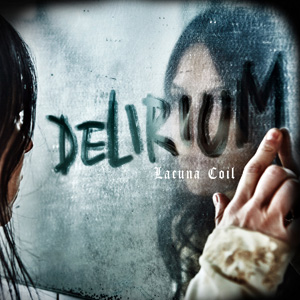
Lacuna Coil have always had a flair for the melodramatic. Following on from the darkly cinematic Broken Crown Halo, the Italian gothic metallers drew on their love of horror even more on Delirium, and dragged the listener down into their oppressive, nightmarish landscape.
If Delirium were a season of American Horror Story, it’d be Asylum. The shift in gear was immediately apparent on opener The House Of Shame; the crystalline voice of Cristina Scabbia was ice-cold and piercing as she pushed her range higher than ever.
Meanwhile Andrea Ferro’s usual rasp had developed into a far deeper, more ferocious snarl, particularly on the outstanding title track, which also featured, perhaps for the first time on a Lacuna Coil record, a genuinely pretty great guitar solo from new member and all-rounder Marco Coti-Zelati, who gave each song a heavier, fuller sound.
The thin, twinkly melodies of yesteryear were nowhere to be found on the creepy Take Me Home, the powerful You Love Me Because I Hate You and especially the brutal assault of Blood, Tears, Dust. In short, Delirium was the heaviest, strangest album Lacuna Coil had made yet. It was a trip definitely worth taking.
Our score: 7/10
29. Architects - Holy Hell (2018)
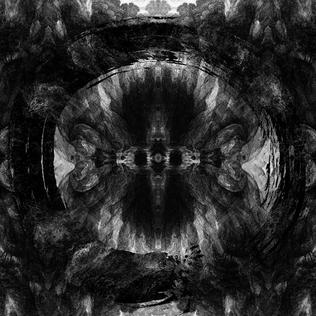
Earlier than everyone was expecting, Architects returned with their first full-length since the tragic death of guitarist Tom Searle in 2016. A visionary talent, Tom was the backbone of Architects’ songwriting, and a key figure in elevating them to the upper echelons of British metal with their visceral yet poignant anthems of defiance and survival.
Sign up below to get the latest from Metal Hammer, plus exclusive special offers, direct to your inbox!
They were themes that permeated Holy Hell. Tom was very much a part of the record, not least in the emotionally devastating Doomsday, which he co-wrote, but for the very real, palpable sense of sorrow and struggle which pulsed through the album’s veins.
Architects shed their skin, bared all and unleashed two years’ worth of grief that had been bottled up inside. It was therapy, it was catharsis, exorcising demons through 11 tracks steeped in sadness and aggression toward the worst moment of their lives.
Drummer Dan Searle said that Holy Hell was about pain, and the lyrics explored this concept in many forms. Lead single Hereafter highlighted the weakness and heartache felt by the band, ‘fighting with broken bones’ and spending ‘my fair share in the deepest depths of despair’, but this display of fragility showed the band’s willingness to continue, through strength and unity, knowing that – as the opening track states – death is not defeat. You could hear the anguish in Sam Carter’s voice as he sang these words, but also an underlying resilience.
As Sam sang that he’ll ‘always carry the cross’ on closer A Wasted Hymn, the emotional force of the previous 40 minutes struck in the chest, flooding all senses, highlighting just how much of Tom was in this album and still in Architects. It’s wasn't perfect, but it was a victory.
Our score: 8/10
28. Machine Head - Unto The Locust (2011)
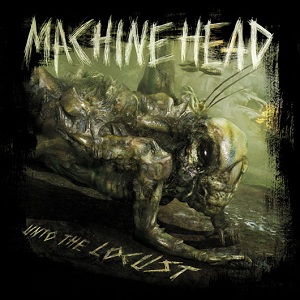
Few bands resonate so fully with their audience as Machine Head, and perhaps only Iron Maiden and Slayer can rely upon their fans for such unflinching dedication.
The crucial difference is that these Bay Area maestros are of a newer generation who enjoy none of the misty-eyed, sometimes forgiving nostalgia of their predecessors. And considering 2007’s The Blackening was lauded as Metal Hammer’s album of the that decade, the pressure to outdo themselves on album number seven was most assuredly immense.
Well, it may not have hit the stop spot, but its healthy placing in the top 50 this decade gives all the more reason to applaud Unto The Locust – a breathtaking metal masterwork that screamed their supremacy as songwriters from the rooftops.
Kicking off with the three-part thrashing cannon blast of I Am Hell, it was clear that this was an album of light and shade, or as it were – howitzer fire and napalm. Be Still And Know was a breathtaking exhibition of Robb Flynn and Phil Demmel’s towering abilities with a six-string, all supercharged by Flynn’s gravel-throated ferocity. So intense you could almost imagine the glee in the studio when it was being tracked.
But it was probably The Darkness Within that saw Machine Head at their most courageous. Beginning with Flynn’s Springsteen-conjuring mid-tempo balladry, it gave dimension to all the fast-riffing bravado before the epic slab of Pearls Before The Swine and the haunting Who We Are wrapped up these scorching proceedings.
It was a mindblowing testament to a brand of heavy metal that refused to chase its tail but sprinted boldly into uncharted territory.
Our score: 9/10
27. Arch Enemy - War Eternal (2014)
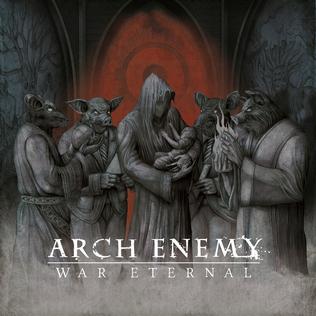
There was already a huge sense of anticipation surrounding Arch Enemy’s first album in three years when the departure of iron-lunged vocalist Angela Gossow on the eve of its release sent a seismic shock through the metal world. Angela had become one of the most recognisable faces in metal, spearheading a revolution in female vocalists and also helping to break down boundaries in extreme metal bands in particular.
To hear that Angela was to be stepping aside to manage the band, and being replaced by Alissa White-Gluz of Canadian metallers The Agonist understandably sent alarm bells ringing among many Arch Enemy’s loyal devotees.
As it transpired, anyone who heard War Eternal’s title track – released just hours after Angela’s departure was announced – immediately realised that any worries were completely unfounded. Alissa fitted perfectly into her predecessor’s substantial shoes, with her raspy but clear vocals sounding fresh and vital at the forefront of Michael Amott’s trademark riffs and a stunning twin-lead harmony.
The simple melodic refrain of You Will Know My Name showed Amott’s ear for a mammoth hook at his best, but also the subtle use of orchestral strings brought an unexpected but welcome grandeur to proceedings.
War Eternal marked a new dawn for Arch Enemy, but it heralded a future that both the band and fans could look forward to. It was an album that stood proudly alongside previous achievements, was both familiar and daring, but also – importantly – heavy as hell.
Our score: 8/10
26. Paradise Lost - The Plague Within (2015)
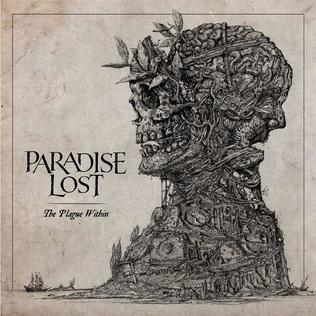
For many vocalists who start their careers growling in extreme metal bands, there grows an urge to develop and diversify their voice, to be recognised as a proper singer of melodies, rather than the guy who got handed the mic because he looked good and couldn’t play an instrument. Often this urge coincides with the rest of the band expanding their musical horizons, with the result that after a few years their music bears no trace of the sound that first got them noticed.
In the 1990s, the best example of this phenomenon was Paradise Lost. Just seven years separate the dank, dismal doom-death of their debut from the keyboard-led electro-goth-pop of One Second, a pivotal release that saw them shake off much of their early underground following while winning over a larger, loyal and passionate worldwide fanbase. The gloom was still there – if not the doom – but even when PL rediscovered their distortion pedals, the guttural roar of the pre-bearded Nick Holmes remained a distant memory.
With the announcement of Nick as new vocalist with old-school death metal supergroup Bloodbath, fans of PL’s early work couldn’t help hoping that this loveable curmudgeon would unleash his distinctive smoky growls over Gregor Mackintosh’s plaintive guitar once more. And sure enough, 35 seconds into cheerily titled opener No Hope In Sight, Gruff Nick was back.
But it wasn't about retrogression for its own sake; this material demanded and rewarded the more cryptic, aggressive vocal approach. Besides, Nick always had one of the strongest grunts in the business: commanding, expansive and chilling, with perfect diction and resounding individuality in a world of 10-a-penny Cookie Monster garblers.
With the same studio production credits as Cathedral on their valedictory The Last Spire, The Plague Within had some of the feel of that album: deadly solemn, mature crystalline elegance counterposed against a celebratory modernisation of atavistic extreme impulses. Beneath Broken Earth was PL’s most severe slab of doom since Rotting Misery, while Flesh From Bone lurched between ceremonial gothic atmospheres and flailing death metal, like a lost demo tune only better written.
It was an emotional experience for any who ever loved this eminently loveable, if frequently stubborn and frustrating band.
Our score: 9/10
25. Sabaton - The Great War (2019)
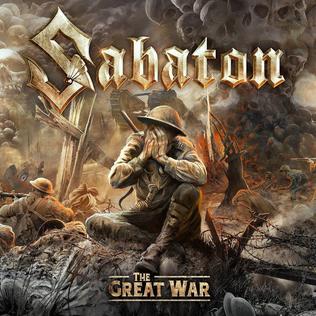
While society is distracted by the current political disarray that’s slowly eroding our personal sense of freedom, it’s easy to forget that a century ago the world had just witnessed one of the bloodiest wars in history that saw millions needlessly sacrificed and dynasties wiped out.
The Great War, even now, remains a harrowing record of slaughter, carnage and destruction that would have the most hardened Cannibal Corpse fan reaching for a cup of tea and a sit-down, and it took a band with unrivalled historical knowledge to tell its story beyond the gore. If you don’t know it by now, that band was Sabaton.
Depending on where you sit, these Swedish power metallers are either an obsessive novelty band who get dorks dancing to songs about D-Day or the greatest history teacher you never had.
Such was the grandiose and erudite quality of their output as we ventured into their ninth album, the question wasn’t whether they could make a credible concept record about one of history’s greatest tales, but if they could give us something new and exciting to latch onto. The answer was yes.
The Great War was, as usual, a rip-roaring, riff-addled march towards victory, coaxing influences from folk and power metal that sounded remarkably upbeat for an account of bloodthirsty mass destruction.
The Attack Of The Dead Men, for all its grim storytelling, remains the most joyful song you will ever hear about chemical weapons, thanks to Sabaton’s knack for lacing their power metal stride with disco-style grooves, while The Red Baron explored other throwback territories with 70s-inspired hard rock.
With The Great War, recorded exactly 100 years after the events it honours, Sabaton once more fortified their status as world-class power metallers, not only pushing their sound to new heights but solidifying their adeptness to tell stories and capture imaginations.
Our score: 8/10
24. Epica - The Holographic Principle (2016)
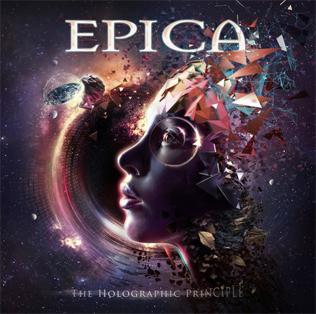
Normally when a band claims that their latest album is their “heaviest yet” it’s best to take it with a pinch of salt. But with 2016 album The Holographic Principle, it seemed Epica were right.
Epica always had a harder edge than their symphonic contemporaries but their seventh album went at it hammer and tongs. Combining the visceral edge of melodic death metal with typical bombast, The Holographic Principle put the guitar at the forefront instead of resting solely on the histrionic impact of choirs and orchestras.
The result was full-pelt metal and maximum symphonic drama. Divide And Conquer was one-part melody two parts caffeinated Dimmu Borgir meets latter-day Nightwish, Beyond The Matrix sounded like something Sabaton would do if they had a bigger budget and The Cosmic Algorithm was a headbangers’ anthem, attacking with choral urgency and Gojira-heavy riffs.
In a moment of respite, Once Upon A Nightmare made the most of the real-deal strings and brass. But overall, this album sounded like someone had let a rocket off in the Albert Hall.
Our score: 8/10
23. Opeth - Pale Communion (2014)
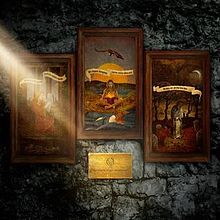
Let’s get the elephant in the room out of the way first: lots of people argued when this record came out that it didn't really count as a metal record. It was, they said, a lovingly crafted hard rock album that harked back to times long gone. True, it was arguably more prog rock than death metal, but Pale Communion continued the journey begun on 2001’s Blackwater Park. And hey, we're not here to split hairs. Opeth will always be part of our world to us.
And in terms of songwriting, Pale Communion stood head and shoulders above its predecessors.
Musically, the tempo only really raised steam on the driving Cusp Of Eternity, with its twisting solo from Fredrik Åkesson, although the excellent, epic Moon Above, Sun Below and Voice Of Treason flexed serious muscle. But mostly, Pale Communion was about a stridently excellent vocal showing from leader Mikael Åkerfeldt, proving once again what a great singer he was, and the masterful implementation of Joakim Svalberg’s keyboards into the band’s sound. These two factors led the way throughout the album’s voyage.
Faith In Others closed proceedings in a relatively low-key manner, perhaps a move to show that the journey was to carry on twisting and winding away from the band’s earliest sound. Maybe not music to everyone’s ears, but taking the musical path they have over the past quarter of a century or so, Opeth had arrived at a time when they were making profoundly excellent, beautiful music. Once, all albums were made this way. Opeth had never forgotten that.
So yes, the new prog age of Opeth had cometh – and with 2016's Sorceress and 2019's In Cauda Venenum it only grew. Mourn their death metal farewell – but more importantly, relish the result of an intelligent, engaging act taking a new stand. Captivating stuff.
Our score: 8/10
22. Trivium - The Sin And The Sentence (2017)
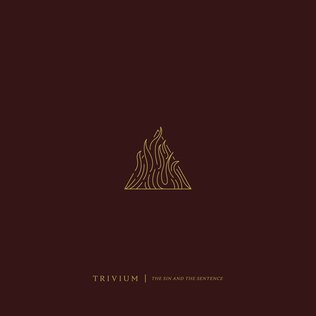
Despite being at the forefront of modern metal since their 2005 breakthrough album Ascendancy, Trivium have often seemed cursed by the fickle demands of their fan base.
Part of the problem was the Florida quartet’s refusal to repeat themselves, and as a result each successive album tended to provoke a new set of gripes from certain quarters, while the true diehards continued to lap up every riff. That situation largely ended here, however.
Much like their 2015 album Silence In The Snow but more so, The Sin And The Sentence was a red-blooded modern heavy metal record, replete with bombastic choruses, virtuoso soloing and a crushing state-of-the-art production.
Matt Heafy’s vocals were stronger than ever, the blend of old and new metallic styles was seamless and convincing throughout, and the likes of the bruising title track, The Heart From Your Hate and the seven-minute, Manowar-tinged The Revanchist were among the best the band had ever written.
Our score: 8/10
21. Deafheaven - Sunbather (2013)

When this album dropped in 2017, it brought with it the mightiest of 'but is it (black) metal?' pontificating the internet had ever seen.
Turns out it was a moot point, because – as we all know – it didn’t have to be black metal in order to be relevant. Indeed, to label it as such might even have been doing Sunbather a disservice, because the album was in fact a pretty unique proposition: a clear evolution from the band’s earlier – and not unsuccessful – attempts to weld together black metal and post-rock, it represented a more harmonious blend of influences.
The end result was a moving opus that didn’t need to be crowbarred into an already-established genre to make anyone feel more edgy about what they were listening to.
Instead it recalled the likes of France’s Amesoeurs and Alcest, and perhaps Altar Of Plagues in its skilled use of traditional extreme metal traits (amongst other things) and its redirecting of these into a new emotional direction. The overwhelmingly cinematic swells recalled everything from The Cure to Mogwai to Russian Circles.
Lyrically too, Sunbather was a deeply personal work, drawing upon some remarkably raw self assessments and memories, a brave approach that only accentuated the moving qualities of this musical rollercoaster. It was a superb and moving collection of tracks, pure and simple.
Our score: 8/10
Founded in 1983, Metal Hammer is the global home of all things heavy. We have breaking news, exclusive interviews with the biggest bands and names in metal, rock, hardcore, grunge and beyond, expert reviews of the lastest releases and unrivalled insider access to metal's most exciting new scenes and movements. No matter what you're into – be it heavy metal, punk, hardcore, grunge, alternative, goth, industrial, djent or the stuff so bizarre it defies classification – you'll find it all here, backed by the best writers in our game.
